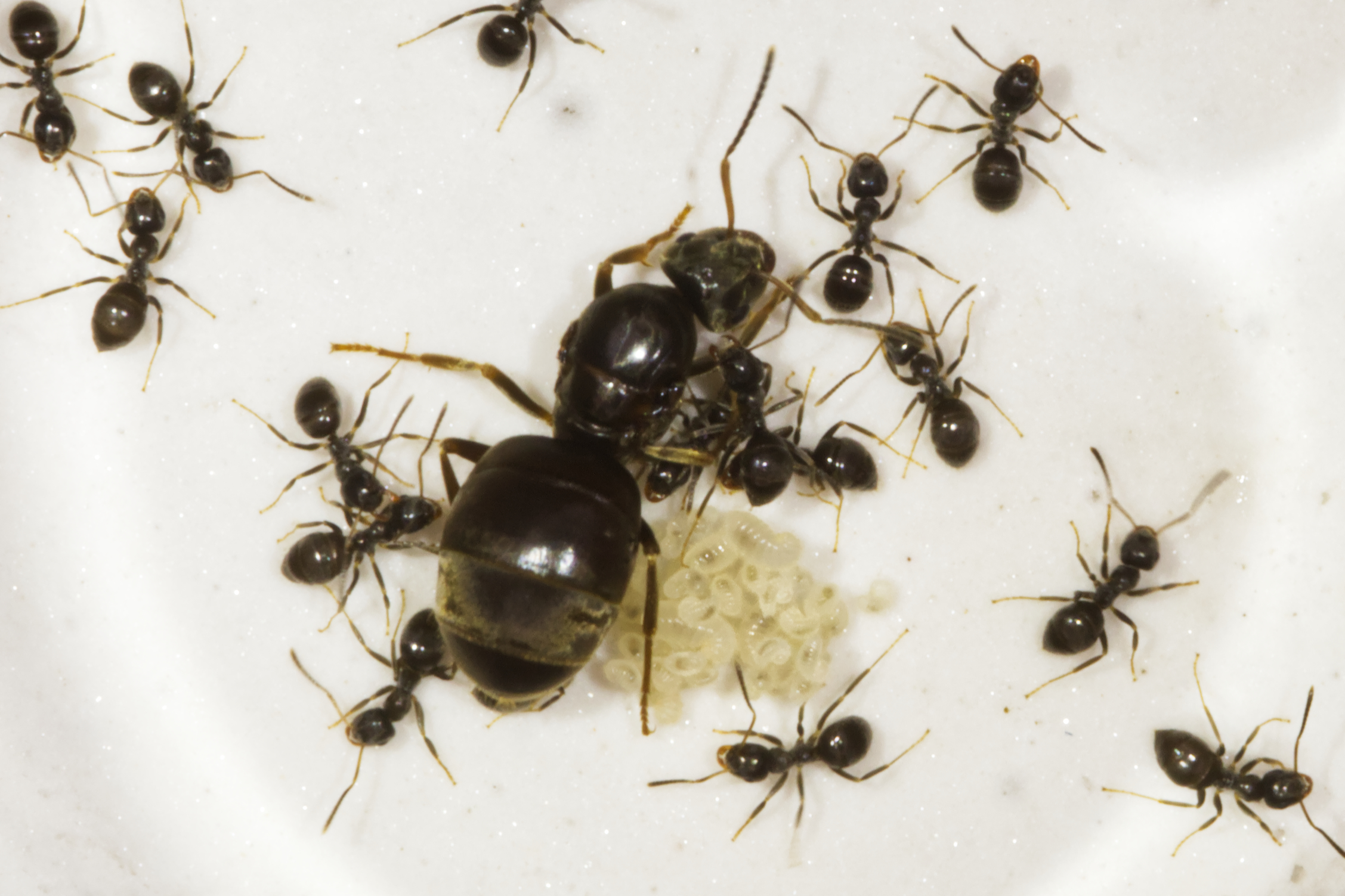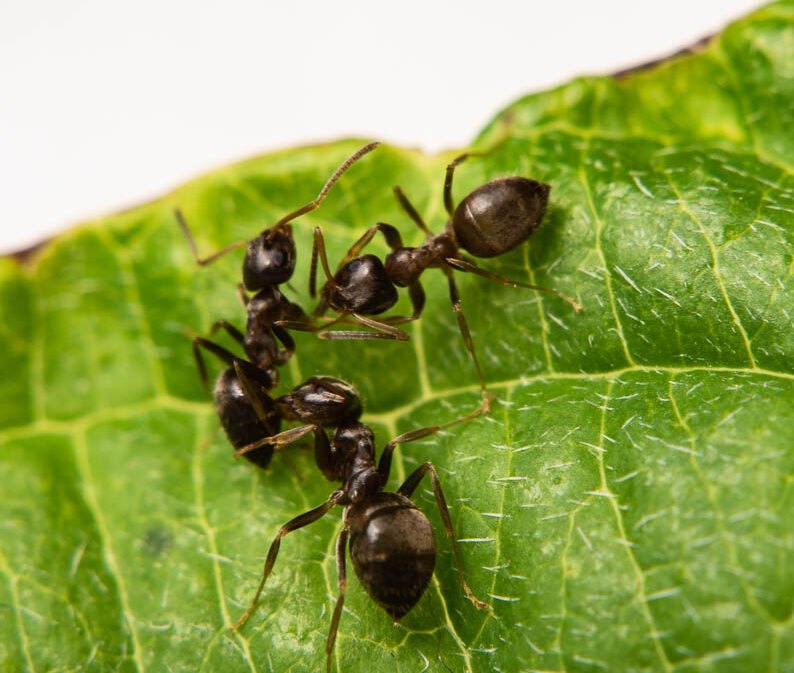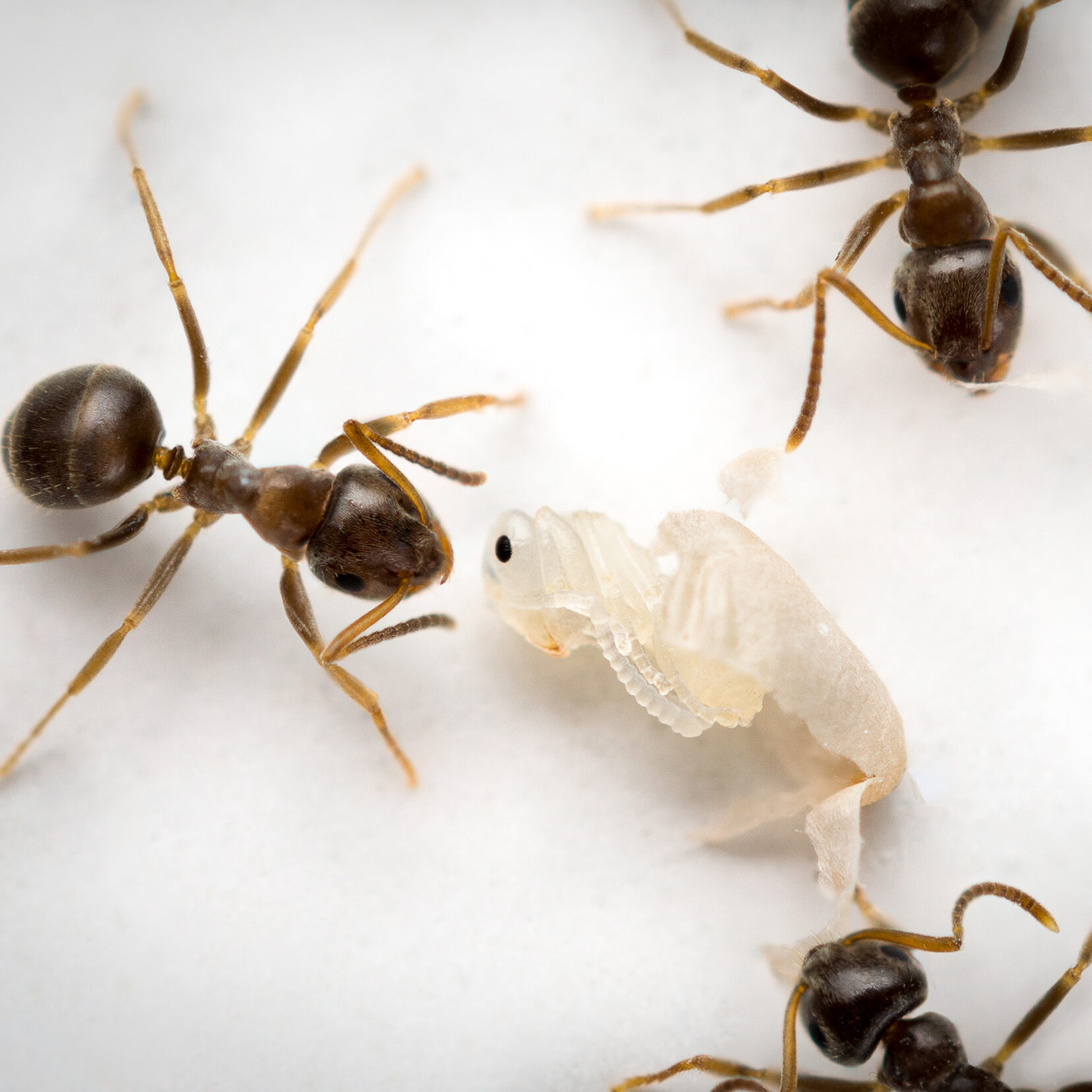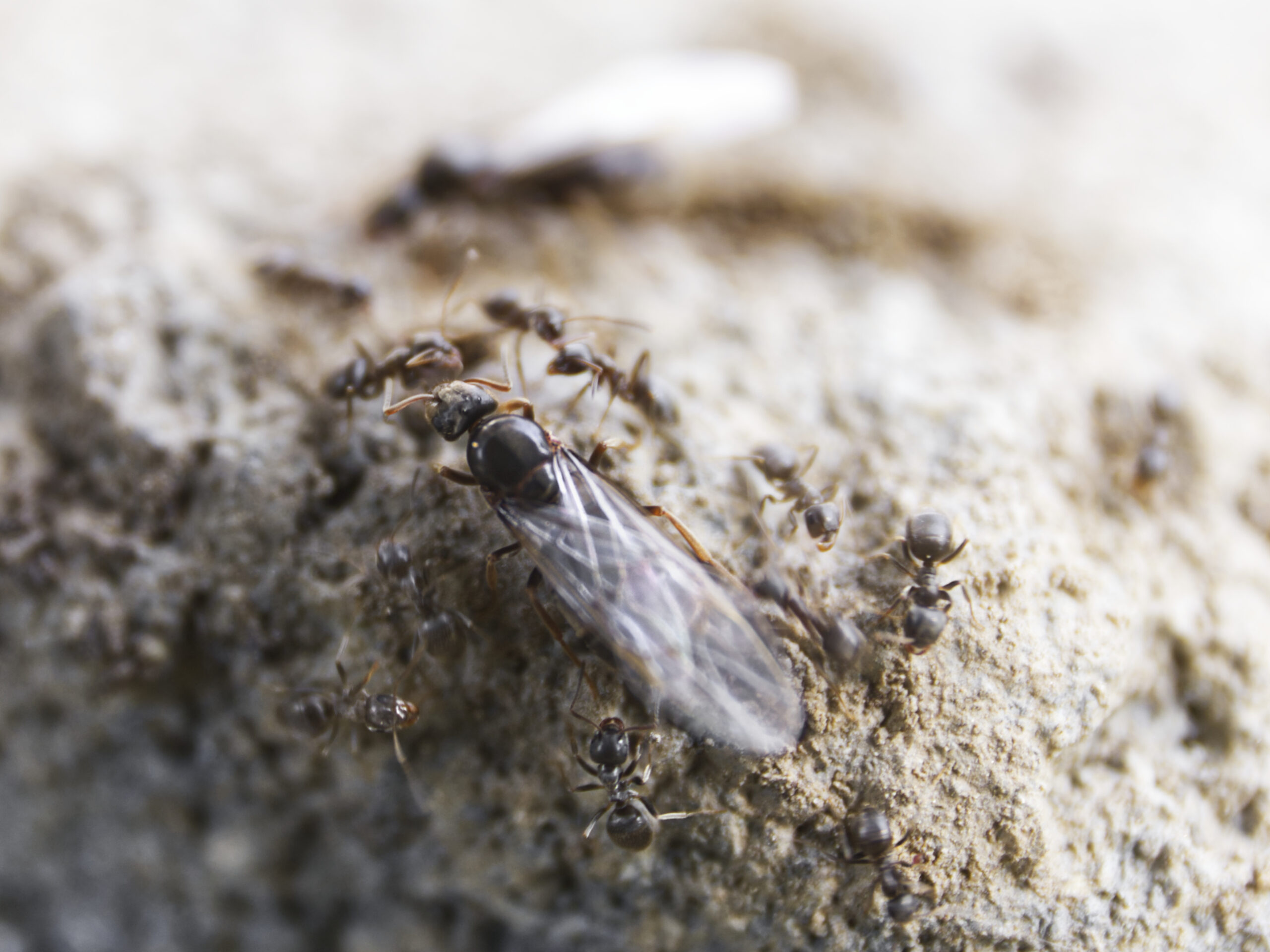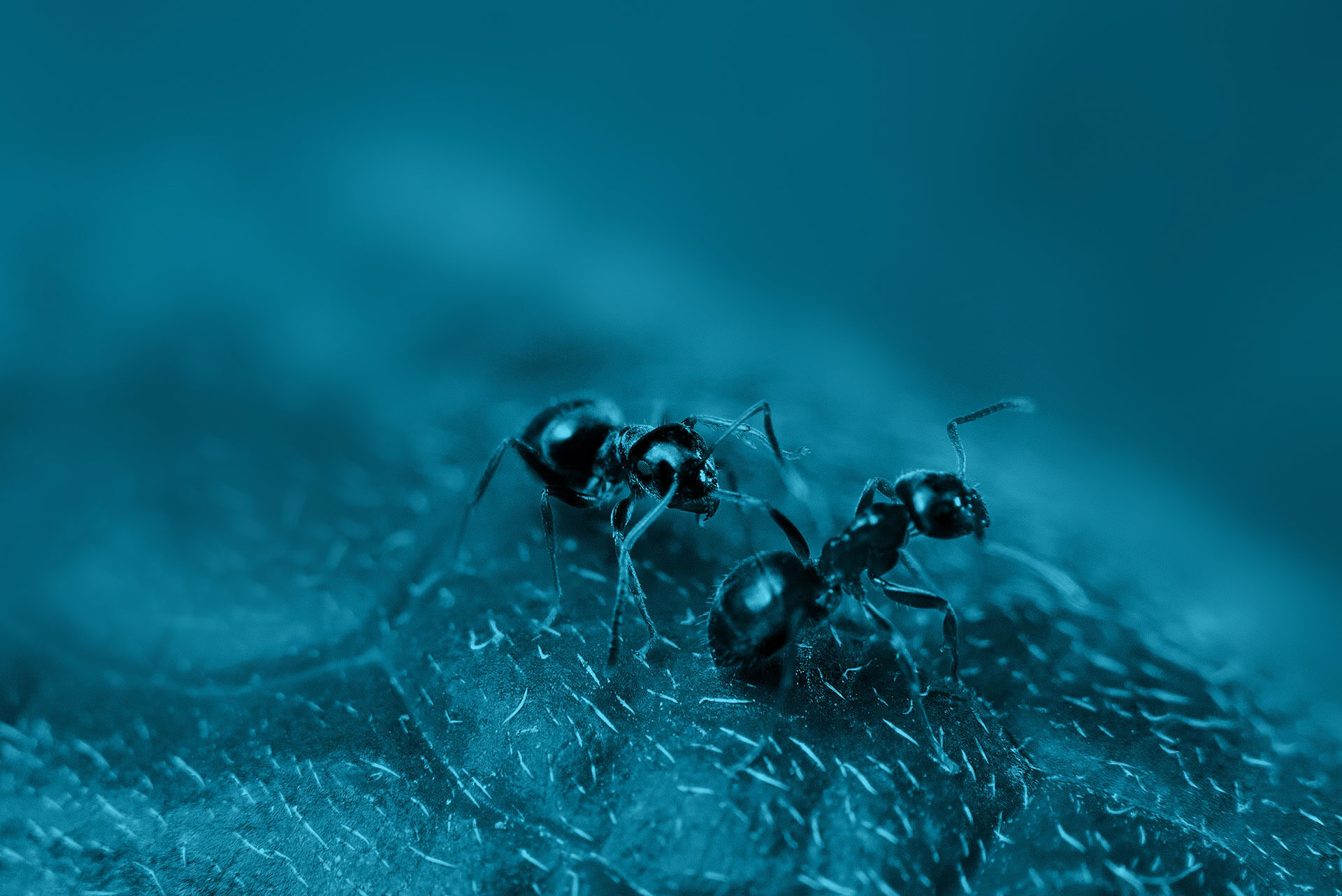
Research
Social immunity
In addition to the individual immunity of all colony members, social insects protect their colonies from disease by cooperative defences. This social immunity acts to prevent contamination of the colony, infection of colony members and disease transmission, hence to improve fitness of the colony.
The concept
Protection of the superorganism
Social insect colonies are „superorganisms”. Like cells in a body, the different insects specialize on different tasks: queens and males reproduce, whilst the workers are typically sterile and perform colony maintenance tasks. Social immunity describes how the colonies as reproductive entities are protected from disease.
Sanitary care
Preventing current infection
Pathogen-exposed ants receive immediate sanitary care by their healthy colony members, effectively preventing infection of the contaminated individuals. Sanitary care combines mechanical removal of infectious particles by grooming and antimicrobial sanitation.
Nest hygiene
Preventing colony contamination
Pathogens need to enter and establish in the colony to later cause infection of colony members. To prevent colony contamination, ants constantly and prophylactically disinfect their nest, particularly their brood pile, with antimicrobials like their formic-acid rich poison.
Treating infection
Preventing pathogen replication
Ants treat infections and thereby prevent pathogen replication and hence disease transmission through the colony. They are able to detect infections already during the non-infectious incubation period by chemical cues and to treat them by complex behaviors and use of antimicrobials. This allows them to prevent the pathogen from producing new infectious particles, a highly efficient way to stop disease spread through the colony.
Social immunisation
Preventing future infection
Social contact with infectious colony members causes pathogen transmission to previously healthy colony members. Often, this cross-contamination only leads to low-level infection of the colony members, which does not cause disease but induces a protective immunisation.
Organisational immunity
Preventing disease spread
Pathogens use the social interaction networks of their hosts for transmission to new host individuals. Social insect colonies react to pathogen entry into the colony by re-organisation of their social interaction networks. Contaminated ants, but also their peers, reduce contact to the remaining colony members. This leads to a highly efficient reduction of disease spread through the colony.
Our research
-
(PNAS, 2018) Ants avoid superinfections by performing risk-adjusted sanitary care
The study demonstrates how ants adjust their sanitary care behaviors based on previous encounters with pathogens. Read more
-
(eLife, 2018) Destructive disinfection of infected brood prevents systemic disease spread in ant colonies
The study shows how Lasius neglectus ants use destructive disinfection to prevent a pathogen from spreading within the colony. Read more
-
(BMC Evol Biol, 2017) Co-founding ant queens prevent disease by performing prophylactic undertaking behaviour
The authors demonstrate that co-founding ant queens engage in undertaking behaviors typically performed only by workers in mature colonies. These infection-avoidance behaviors occur before the queens contract the disease, thereby enhancing the likelihood of successful… Read more
